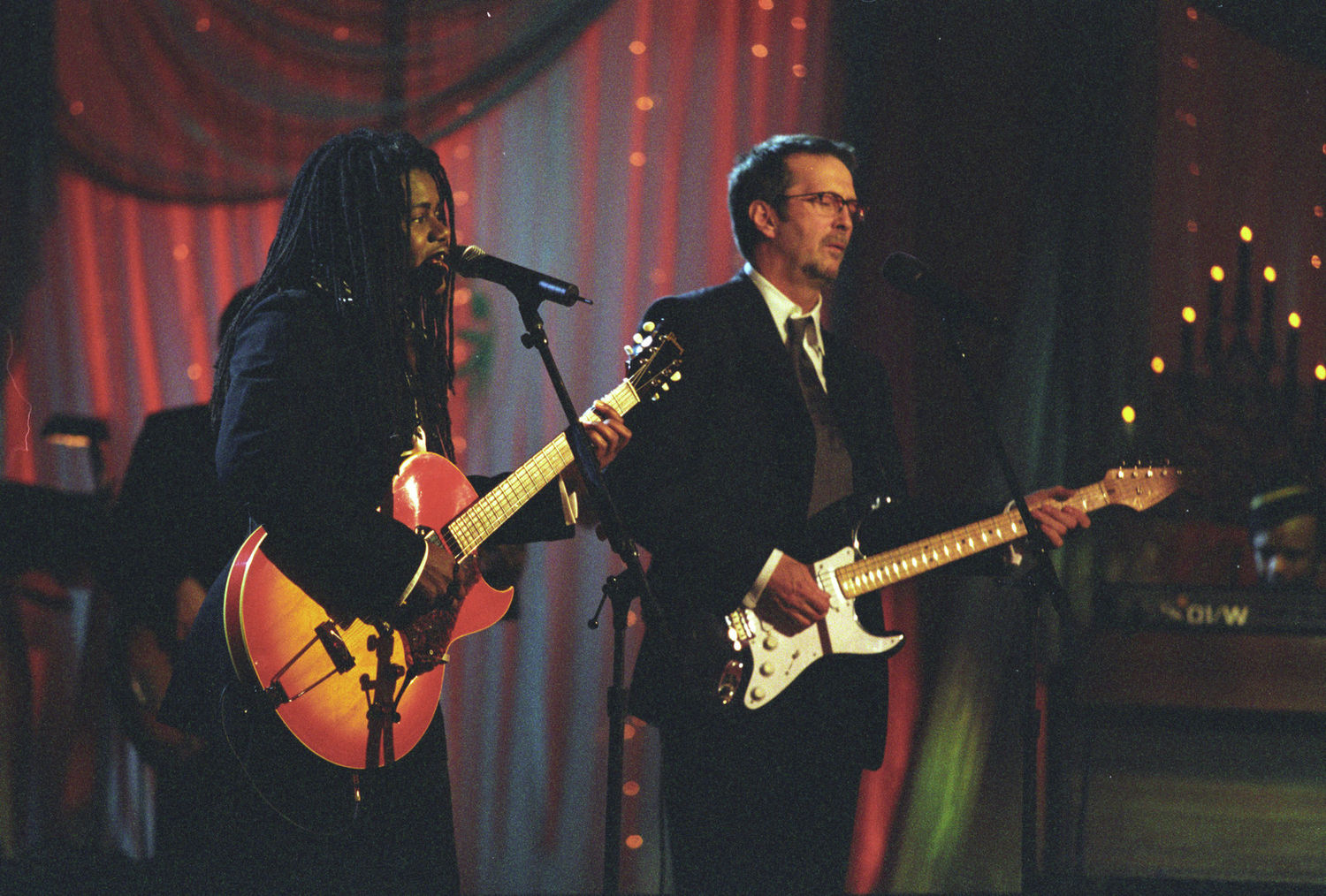“Take Care of Each Other”: Florence + The Machine’s High as Hope tour
Tilda Butterworth reflects on the 2018-19 tour and the cult-like community the band has brought together
“You in all your vibrant youth, how could anything bad ever happen to you?”
I couldn’t tell whether Florence Welch was addressing her past self with the bittersweet irony of hindsight, or the crowd of youthful, hopeful faces streaked with tears and glitter who stood before her, singing the words back. It was 14th March 2019, the night of the Berlin show of Florence + The Machine’s High As Hope tour, and I was standing alone in an enormous arena, heart beating wildly.
For someone so translucently pale, peeking out from underneath an uneven auburn fringe, Florence has tremendous power. Her speaking voice is ethereal, and when she addresses the audience she’s nervous, as if searching for something within their masses. Yet she sings as if she is conjuring the elements, and dances like a woman possessed by a hurricane or an ancient, angry ghost – part battle cry, part exorcism.
High as Hope itself is a little like an exorcism. The album is reminiscent of confessional poetry – it is a diary of regrets and apologies, but also an acceptance of the past. There is something deeply reassuring about the way Florence’s music traverses oceans and centuries, but still remains tied to its messy South London roots. (If Britain has anything to be proud of in recent years, I would argue that it is this band.)
Florence is a woman of extreme contrasts, whose self-professed artistic influences range from classical mythology to violent Catholic imagery to the pre-Raphaelite aesthetic, all imperfectly tangled up in prairie dresses and 2000s miniskirts. Listening to the “This is Florence + the Machine” playlist on Spotify feels a bit like wandering into a vintage clothes shop. Despite this, High as Hope is preoccupied with the present, addressing the climate crisis with the poignant lyric, “What if one day there is no such thing as snow?”
Even in Berlin, almost a decade after the release of her first album Lungs, the element of the teenage whirlwind within the music was tangible. It felt reminiscent of her early years in the industry, banging on hotel walls in place of percussion and hurling empty shot glasses haphazardly into a rowdy pub crowd. She is still known to yell “Put your fucking phones away!” at the audience, an advocate for being vulnerable and present in the moment.
“Part of Florence’s power is she creates a permissive, accepting space, particularly for women.”
“There’s a very feminine energy in the room tonight,” she declared during the show, and the crowd roared back its affirmation. Introducing her song 'Patricia', she went on to announce that the spirits of Patti Smith and Pina Bausch were in fact present: “She said when I perform this song that means she is here with all of us, so thank you for being here, Patti Smith.” The cloths above the stage stirred and billowed like the sails of a ship, as if there really was something invisible hovering in the air. Part of Florence’s power is she creates a permissive, accepting space, particularly for women. She encouraged us to hold hands, to embrace the person next to us, to “tell a stranger you love them because I promise you that you do.” From a less earnest and genuine artist it would have felt forced or patronising, but in that moment it felt like the only natural thing to do.
Florence’s contrasts showed themselves clearly that night – one moment she was still and solitary in the middle of the vast, barren stage, and the next she was running barefoot through the crowd, security on her tail. When she descended to the audience for What Kind Of Man, hundreds of hands reached up out of the darkness to hold her, mutual trust and dependence palpable. Fans of the band often refer to themselves as a coven – a sign of the power and unity they find through her music (and an allusion to the fact that many of them practise witchcraft). Throughout the tour, they delivered tarot cards, tattoo requests, mixtapes and their own poetry books to the band. In Edinburgh, one fan proposed to another on stage, and Florence lovingly presided over them. There was a sense of being part of a movement – an ever-whirling, spinning, leaping force of good. There still is, even now when those who comprise it are isolated across the globe.
Florence’s parting remark at the end of the Berlin show will always stay with me. “Take care of each other,” she said. The High as Hope tour concluded with two sold-out shows in Greece, on the stage of the Acropolis. The music carried through the air, and those who couldn’t get tickets danced barefoot on the hills of Athens. It seemed like the only fitting way to bring the era to an end.
 News / Cambridge academics stand out in King’s 2026 Honours List2 January 2026
News / Cambridge academics stand out in King’s 2026 Honours List2 January 2026 Interviews / You don’t need to peak at Cambridge, says Robin Harding31 December 2025
Interviews / You don’t need to peak at Cambridge, says Robin Harding31 December 2025 Comment / What happened to men at Cambridge?31 December 2025
Comment / What happened to men at Cambridge?31 December 2025 News / AstraZeneca sues for £32 million over faulty construction at Cambridge Campus31 December 2025
News / AstraZeneca sues for £32 million over faulty construction at Cambridge Campus31 December 2025 Features / “It’s a momentary expression of rage”: reforming democracy from Cambridge4 January 2026
Features / “It’s a momentary expression of rage”: reforming democracy from Cambridge4 January 2026










